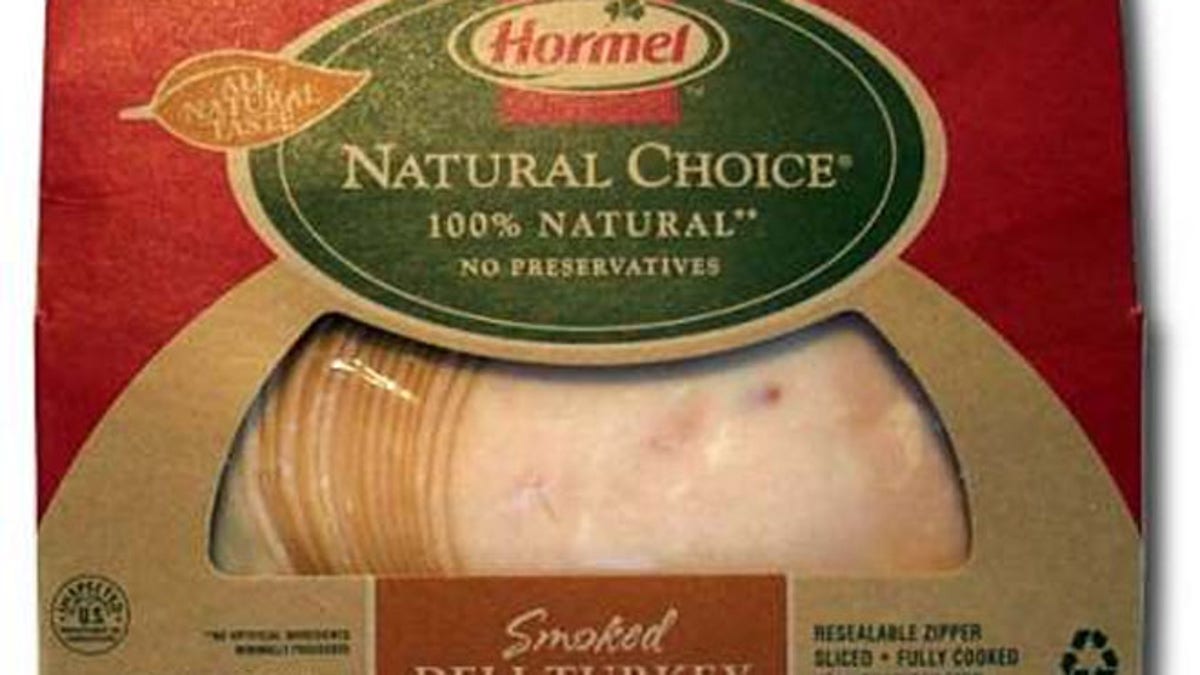
Hormel is the country’s second-largest turkey processor. (Hormel)
Hormel says it will sell less turkey this year because of a spreading bird flu outbreak.
So far the virus has been found at farms housing 2.3 million turkeys, all of which have died of the disease, or have been killed or soon will be in order to stem the spread of avian flu. Most of the birds were in Minnesota, which is the largest turkey-producing state in the U.S.
Big commercial farms have been hit hard, and Hormel said Monday it is experiencing significant turkey supply-chain problems. It expects outbreaks to decrease as the weather improves.
Both Hormel and its Jennie-O Turkey Store division are based in Minnesota.
Hormel Foods Corp., citing its upcoming second-quarter report, said Monday that it can't comment on how turkey prices or the Thanksgiving turkey season will be affected. It is scheduled to report its earnings May 20 and said it will provide more details about its turkey business then.
According to a Jennie-O Turkey Store website, the highly contagious H5N2 strain of avian flu has been confirmed at 19 farms that are either independent contract growers for Jennie-O or are company-owned. All but one of those are in Minnesota.
The virus has been found in turkey flocks in six states. Scientists believe domestic poultry are getting the virus from wild migratory waterfowl, although security measures at farms are supposed to minimize the chances that will happen. Once the virus is confirmed at a particular farm, all of the turkeys at that farm are killed and the location is closed for a full cleaning.
Hormel says all of its flocks are tested for the virus.
About 46 million turkeys are raised in Minnesota annually. It's not clear why that state has been particularly hard-hit by the disease. About 235 million turkeys were produced in the U.S. last year.
On Monday, the U.S. Department of Agriculture said the virus was also found at an Iowa farm holding 5.3 million hens, or almost 10 percent of the state's egg-laying chickens.
